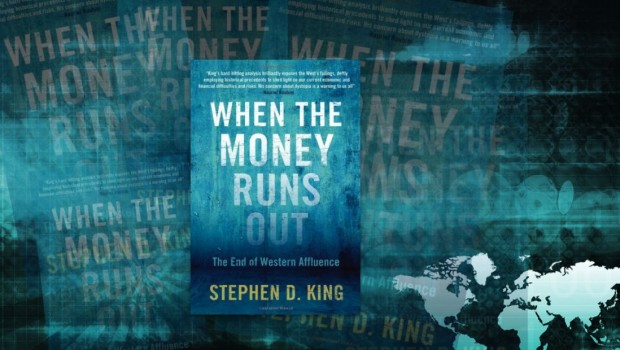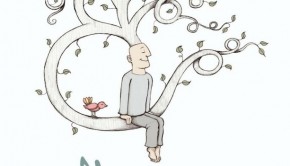When the Money Runs Out: The End of Western Affluence by Stephen D King
| Press reviews | Buy the book | Have your say |
Blurb: The Western world has experienced extraordinary economic progress throughout the last six decades, a prosperous period so extended that continuous economic growth has come to seem normal. But such an era of continuously rising living standards is an historical anomaly, economist Stephen D. King warns, and the current stagnation of Western economies threatens to reach crisis proportions in the not-so-distant future. Praised for the ‘dose of realism’ he provided in his book ‘Losing Control’, King follows up in this volume with a plain-spoken assessment of where the West stands today. It’s not just the end of an age of affluence, he shows. We have made promises to ourselves that are only achievable through ongoing economic expansion. The future benefits we expect – pensions, healthcare, and social security, for example – may be larger than tomorrow’s resources. And if we reach that point, which promises will be broken and who will lose out? The lessons of history offer compelling evidence that political and social upheaval are often born of economic stagnation. King addresses these lessons with a multifaceted plan that involves painful – but necessary – steps toward a stable and just economic future. (Yale University Press)
The Economist
“Mr King, the chief economist of HSBC, is not the kind of run-of-the-mill Jeremiah who calls for citizens to buy gold and shotguns and retreat to a mountain hideout; his book is well-written, thoughtful and highly convincing … Perhaps Mr King underestimates the political difficulties of implementing some of these solutions (more immigration is not a populist slogan); perhaps he is guilty of lumping America (with its abundant energy resources and better demography) in the same camp as Europe. But his clear-eyed assessment of the problems ahead makes the book essential reading.”
Iain Morris, The Observer
“King is not devoid of humour, joking in a passage about ageing populations that members of the Who have evidently changed their minds about dying before they get old. Mostly, however, this is a solemn and dispiriting treatise, whose final chapter of proposed fixes fails to leaven the mood … Nevertheless, King writes with an authoritative and erudite voice, making him an excellent guide through the convolutions of the financial crisis.”
Hamish McRae, The Independent
“Beautifully written … He shows how we assumed the good times would continue for ever, and how policy-makers made matters worse. He notes how their failure has led to a collapse of trust not only in financial services, but in economic policy.”
Bryan Appleyard, New Statesman
“Apart from letting the banks off too lightly, King is a tough-minded economist and his approach is analytical and brilliantly educational, though you might wish you hadn’t learned some of the stuff in these pages … the book’s greatest strength…is its clear sense of the role of belief or, if you prefer, psychology in the working of the economy.”
Dominic O’Connell, Sunday Times
“Those put off by economics need not fear … The tone is breezy, and King ranges widely, from Quaker bankers and the gold standard to the euro crisis, with an enlightening and worthwhile diversion into the feudal economy and Wat Tyler’s grisly end … King makes a great case for further decline in the West, but might be guilty of exaggerating the case for the prosecution … The weakest section is on suggested remedies.”
Buy the book
Amazon | Foyles | Hive | Waterstones
[AMAZONPRODUCT=0300190522]












